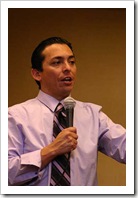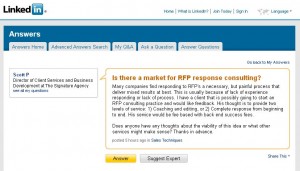 Brian Solis – founder of FutureWorks, PR 2.0 blogger, and revolutionary thinker – presented at NewComm Forum 09 last month about “The New Organization Landscape for Marketing Communications.” Here are the highlights of his fabulous presentation, which has yet to be released:
Brian Solis – founder of FutureWorks, PR 2.0 blogger, and revolutionary thinker – presented at NewComm Forum 09 last month about “The New Organization Landscape for Marketing Communications.” Here are the highlights of his fabulous presentation, which has yet to be released:
Solis asked “Who owns social media?” A very hot topic in the blogosphere these days, it was a great way to start the presentation because all ears pricked up.
He said that no one owns it and, at the same time, everyone owns it. The sum of all parts (of an organization) make a whole. And social media affects every part of an organization.
Solis then described social media as “the new gold rush,” where everyone’s jumping in because “it’s hot” and “it’s supposed to be what we’re doing.”
But, Solis says, the question we should be asking is: “How are we going to socialize what we (our brand) represent?”
And who represents your brand in the Social Web does matter. Solis recommended that organizations carefully consider who in the company should be entrusted with the keys to the Ferrari. He talked about “Twinterns” or interns who are in charge of corporate Twitter or other social media accounts. He said, “Are you going to risk having a Twintern deal with a blogger with thousands of RSS subscribers?”
“Are you going to risk having a Twintern deal with a blogger with thousands of RSS subscribers?”
There are other ways to be cost effective.
Companies today are still viewing Social Media from a top-down perspective…when they really need to be embracing it more as an evangelical initiative.
“Social Media provides a fantastic opportunity to build communities and create ways to get other people to go out and do work for you,” said Solis. Each division in a company needs to be “socialized” in order to build these communities.
How would this setup occur in an organization? A social media “team” begins an “interagency” within your organization. The new roles for this new communications agency would look like this:
- Digital Anthropologist
- Strategist
- Communications Manager
- Research Librarian
- Support Team
The most important thing to remember is that social media is about sociology; not technology. Effective immersion into this world requires experience, insight and perspective…solidified by interaction…and measured by relationships.

